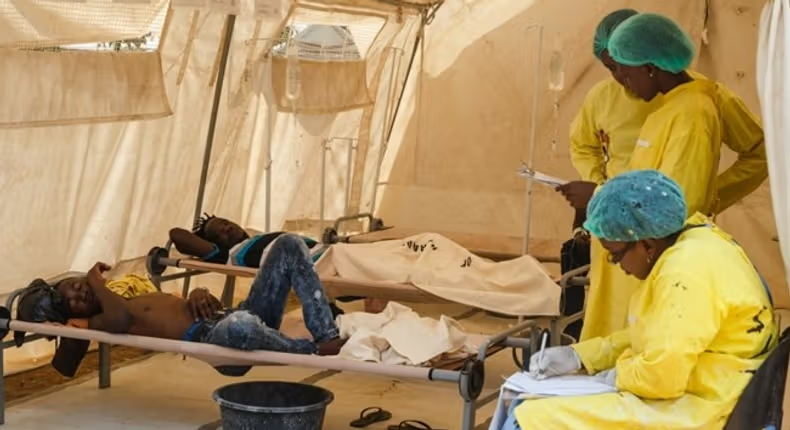The Nigeria Centre for Disease Control and Prevention (NCDC) has reported a dramatic 128% increase in cholera cases across Nigeria. Lagos State has been identified as the most affected, accounting for 60% of the total cases, with Lagos Island being the hardest-hit Local Government Area (LGA).
According to the NCDC’s latest data for epidemiological week 35, the death toll has risen by 106%, with 204 fatalities reported in 2024. The number of suspected cases has jumped to 7,056 as of September 1, compared to 3,096 cases at the same time in 2023.
The country declared a state of emergency on cholera on June 24 due to a case fatality rate of 3.5%, significantly above the national average of 1%. Cholera, caused by the bacterium Vibrio cholera, remains a severe health challenge, especially in areas with poor sanitation and limited access to clean water.
The NCDC is ramping up rapid diagnostic testing and stool culture tests to manage the outbreak. Other heavily affected states include Bayelsa, Katsina, and Zamfara. While the cholera fatality rate has slightly improved to 2.9% from 3.2% in 2023, vulnerable groups, particularly children under five, are most affected.
Public health experts attribute the surge to inadequate sanitation in densely populated urban areas like Lagos Island. Dr. John Okoro, an epidemiologist, emphasized the need for improved waste management and clean water access to combat the spread of waterborne diseases.
Environmental health specialist Peter Adamu highlighted long-standing infrastructure gaps in neglected slum areas, stressing the urgent need for comprehensive urban health planning and multi-sectoral collaboration to address these issues and prevent future health crises.

